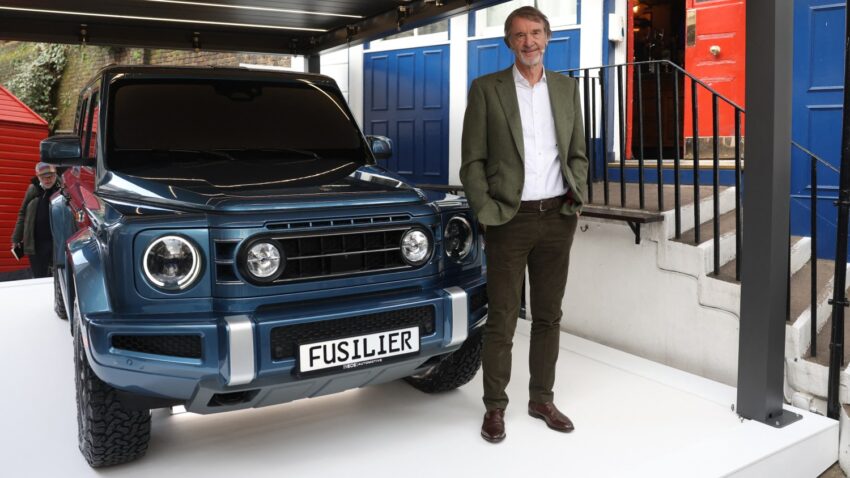Jim Ratcliffe halts Ineos electric vehicle project amid low demand and policy uncertainty
Sir Jim Ratcliffe has postponed plans for Ineos Automotive to build an electric vehicle, just months after unveiling the model, due to low consumer demand and unclear government policies on net zero.
In February, the petrochemicals magnate introduced the all-electric Fusilier, intended to be available as a hybrid variant and a smaller companion to the Ineos Grenadier, a 4×4 developed following Jaguar Land Rover’s discontinuation of the classic Land Rover Defender.
Ineos Automotive stated, “We are delaying the launch of the Ineos Fusilier for two reasons: reluctant consumer uptake of electric vehicles and industry uncertainty around tariffs, timings and taxation. Charging infrastructure for electric vehicles in most markets continues to grow, and consumer confidence will match that. But for the industry to meet net-zero targets, there needs to be long-term clarity from policymakers and a variety of technology options available, considering factors like raw materials, infrastructure, and affordability.”
“We are committed to bringing an electric vehicle to market not just because of legislation but because we want to: it is the right thing to do. But as a new small-volume manufacturer, we can only produce vehicles that will sell. The Fusilier is an electric vehicle but also provides the option of a range extender that uses a small low-emission petrol engine to charge the electric battery when external charging isn’t available.”
“This low-emission solution for longer journeys or where charging is not possible would still be banned in both Europe and the UK in 2035, if not earlier in the UK should Labour be elected into government this week.”
Ratcliffe, a Monaco-based tax exile who amassed his fortune in the oil, gas, and chemicals industries, has a history of publicly criticising government decarbonisation policies. He previously spent millions developing a hydrogen variant of the Grenadier, only to halt plans due to the lack of hydrogen refuelling infrastructure.
At the Fusilier’s launch, Ratcliffe, 71, expressed his scepticism about electric vehicles. The Fusilier was touted to have a 250-mile range, but Ratcliffe admitted he preferred the range-extended, petrol-hybrid version. “You have to have a green offering because the regulators say so, whether we like it or not,” he said, “but you cannot force the consumer to buy something they do not want. The consumer should have the choice.”
Referring to the recent slowdown in electric car sales in Britain and Europe, he added, “The consumer is saying they don’t want to buy one at the moment. You cannot force it down their throat, otherwise they will start voting with their feet.”
“There are two huge failings of electric vehicles. You cannot always get from A to B and you cannot always find a charging place that is available or that doesn’t have a queue. You can’t be too idealistic about it. You cannot have an ‘ideal solution’ if the customer does not want it.”
The plan had been to produce the Fusilier at the Austrian factory of Magna Steyr, a contract manufacturer, but the production schedule has been pushed back to 2027 at the earliest. Ratcliffe, who owns a 29% stake in Manchester United, initially planned to manufacture in south Wales before moving Grenadier assembly to France. He has also considered moving production to China and America.
Dismissing suggestions that Ineos Automotive is a vanity project, Ratcliffe insists the plan is for the business to be “commercially viable”.
